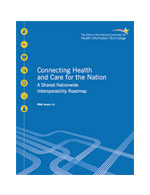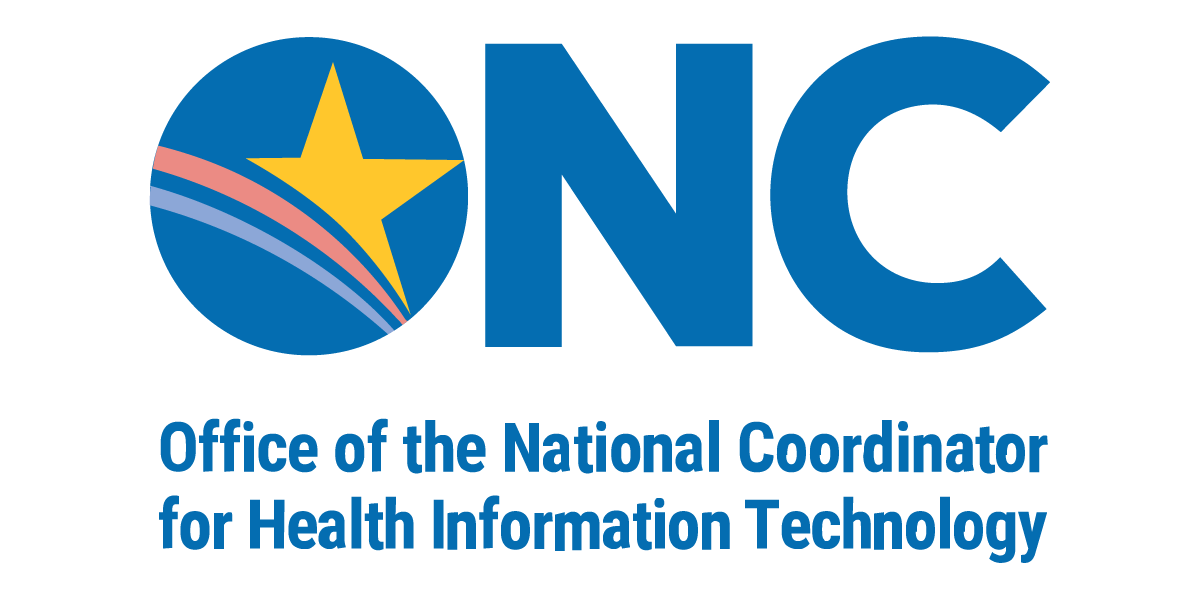 ONC accepted public comments on Connecting Health and Care for the Nation: A Shared Nationwide Interoperability Roadmap Draft Version 1.0. The comment period ended on April 3, 2015.
ONC accepted public comments on Connecting Health and Care for the Nation: A Shared Nationwide Interoperability Roadmap Draft Version 1.0. The comment period ended on April 3, 2015.
The draft Roadmap proposes critical actions that need to be taken by both private and public stakeholders to advance the nation towards a more connected, interoperable health IT infrastructure and was drafted by ONC based on input from private and public stakeholders. The draft Roadmap outlines the critical actions for different stakeholder groups necessary to help achieve an interoperable health IT ecosystem.



Interoperability Comments
ICSA Labs
See uploaded document
interoperability_roadmap_public_comment_david_tao.docxMHRDLR, LLC
Below are some of the specifics of this proposal that I object to. I am not interested in elected or unelected bureaucrats parsing though my or my family's private health information for research or other uses without my expressed written consent. Nor do I ever want my data "marketed" to others for analysis or research. And, penalties for non-compliance by my medical service providers? No way. Period!
Links data without consent for government and research use: “As a learning health system evolves, more than individual/patient-specific information from health records will be matched and linked, including provider identities, system identities, and device identities and others to support public health and clinical research.” (p. 24)
Proposes to turn EHR companies into public utilities to create a national medical records system: “Data holders and entities facilitating interoperability of electronic health information should not establish policies or practices in excess of law that limit the availability of electronic health information by another entity that is in compliance with applicable laws and these governance principles.” (pp 32-33)
Uses financial penalties to enforcing practitioner compliance with EHRs and interoperability (data sharing): Among other penalties, the Roadmap calls for “requirements/penalties that raise the costs of not moving to interoperable systems.” (p. 39) It’s beginning: “In order to bill for [chronic care management, according to the 2015 Physician Fee Schedule] physicians will be required to utilize certified health IT to furnish certain services to beneficiaries.”
American Dental Association
On behalf of the 158,000 American Dental Association (ADA) members, we thank you for the opportunity to comment on the Office of the National Coordinator for Health Information Technology (ONC) Nationwide Interoperability Roadmap Draft Version1.0. The ADA, as the only American National Standards Institute (ANSI) accredited Standards Development Organization (SDO) for dentistry, should be recognized by ONC as the authoritative voice for the dental profession to provide pertinent dental implementation specifications that can be widely tested and then adopted by the HHS Secretary for use in the future. Please see the attached letter for specific section by section comments. If there are questions concerning these comments, please contact Dr. Frank Kyle in the ADA Washington, DC Government and Public Affairs Office at 202-789-5175 or by e-mail at kylef@ada.org.
ltr_04012015_ada_comments_nationwide_interoperability_roadmap_2015_2020.pdfI oppose the ONC roadmap for the following reasons.....
-it will link data without consent for gov't and research use. You must allow patients the right to opt out of research. I have run many research projects in my career and can't imagine this??
-it will use financial penalties to force practitioners to comply with EHR's, etc. There are better ways for this and better forms to gain acceptance.
-it will be a point of patient info hacking. I am not satisfied that the security around this project would suffice.
Finally....you can not force this on people...patients or practitioners....you will create a black market or underground market within healthcare.
My solution....go back to starting point, start over....you can do better.
It is very important to me to keep my health information completely private, no mass collection for any reason. The HIPPA law is inadequate. Please consider yourself, your loved ones, and family in the future. This is a critical area of personal privacy. Thank you, Kathryn
Small Business
States rights are an issue here. The Federal government has no right to interfere with the lawmaking rights of a sovereign State who has the right to protect its citizens. The Constitution gives the Federal government no rights over medical practice. The Roadmap Proposes to repeal federal law that allows state legislatures to enact true medical privacy laws for citizens. The Roadmap proposes to undo state’s rights under HIPAA to enact state laws and conform all state laws to federal HIPAA “no privacy” rule. (p. 67)
Individual medical information is the property of the individual. It is an affront to have my medical information available to everyone in government and every hacker in the world (since government computer systems are poorly defended and the object of hackers world wide). The Roadmap proposes to turn EHR companies into public utilities to create a national medical records system: “Data holders and entities facilitating interoperability of electronic health information should not establish policies or practices in excess of law that limit the availability of electronic health information by another entity that is in compliance with applicable laws and these governance principles.” (pp 32-33) This is more of a NSA project than anything else. The government is attempting to control medical service because then they control everyone.
This is just another big government boondoggle to control individuals. It uses financial penalties to enforce practitioner compliance with EHRs and interoperability (data sharing): Among other penalties, the Roadmap calls for “requirements/penalties that raise the costs of not moving to interoperable systems.” (p. 39) It’s beginning: “In order to bill for [chronic care management, according to the 2015 Physician Fee Schedule] physicians will be required to utilize certified health IT to furnish certain services to beneficiaries.” This will not increase or enhance the medical results it will just enable the government to regulate medicine with a heavier hand.
National Kidney Foundation
Attached please find comments from the National Kidney Foundation on use case prioritization.
20150402_nkf_comments_on_interoperability_roadmap.pdfThe Supreme Court has made much of our right to privacy. This bill violates our privacy.
(1) It interfering with state privacy laws by overriding them.
(2) It makes us more vulnerable to hacking like the recent Anthem Blue Cross case and possibly medical identity theft.
(3) It gives our data to government and researchers without our permission for unknown uses.
(4) It punishes doctors if they protect patient privacy.
American College of Physicians
See attached comment document.
acp_comment_letter_to_onc_on_draft_roadmap-final-2015-04-02.pdfNCPDP
see attached comments from NCPDP.
ncpdp_comments_onc_interoperability_roadmap.20150327.pdf